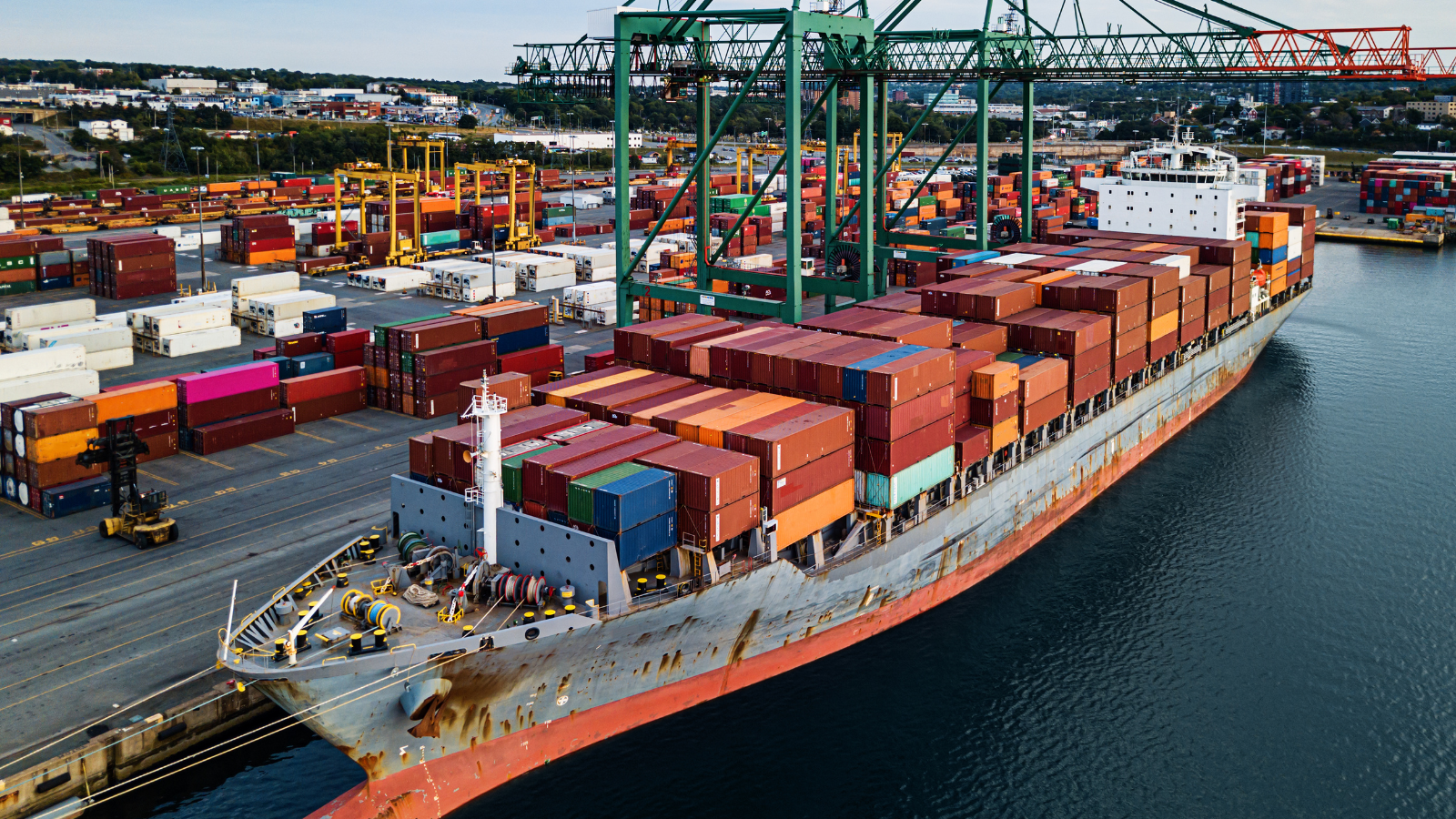ATI Pilots' Union Pushes for Improved Contract Amid Amazon's Rapid Growth
In a recent interview, the chair of the pilots' union at Air Transport International (ATI), a key air carrier in Amazon's delivery network, expressed frustration over delayed contract negotiations.
The union, representing ATI pilots, has asked the National Mediation Board to declare an impasse in contract talks and move to binding arbitration, potentially paving the way for a strike. Talks have been ongoing for over three and a half years, focusing on issues like pay, retirement benefits, and work rules.
The union argues that Amazon's growing e-commerce business and pilot compensation at other airlines involved in Amazon's rapid fulfillment network should be the benchmarks for a new labor contract. ATI primarily shuttles e-commerce packages for Amazon's express delivery network, making these issues paramount.
Read more about this at Freight Waves >
WHY IS THIS IMPORTANT FOR MY INDUSTRY?
ATI is having a tough time finding experienced pilots. That's not just an aviation issue; it's got implications for anyone looking for skilled labor in transportation and logistics. Even the people in trucking can relate – finding the right talent isn't always a smooth ride.
The negotiations happening between ATI and its pilots aren't just about money; they're influenced by the whole market “vibe”. It's all about balancing labor costs and staying competitive.
Essentially folks, the whole situation is a friendly reminder that fairness in labor, the power of big players, and smart labor management are keys to keeping the whole show running smoothly. So, take notes, because the show must go on!
🔥 OUR HOT TAKE?
While it's easy to sympathize with the ATI pilots and their union's call for better compensation and fair labor practices, it's essential to take a step back and consider the bigger picture here. Amazon's influence on the logistics and e-commerce landscape is undeniable, but should it be the sole yardstick for determining pilot compensation?
The union's argument that Amazon's success should directly translate to higher pay for ATI pilots raises questions about the dynamics of a free market. Are we comfortable with one company's dominance dictating labor standards across an entire industry? Think about it…
Three and a half years of negotiations is undoubtedly frustrating, but could a strike be the right solution? Strikes can disrupt supply chains, impact businesses, and inconvenience consumers. Is it fair to potentially harm so many others in the pursuit of better terms for one group of workers? It depends on which side of the coin you’re looking at, we suppose.
In a recent interview, the chair of the pilots' union at Air Transport International (ATI), a key air carrier in Amazon's delivery network, expressed frustration over delayed contract negotiations.
Stellantis has made a significant announcement about the separation of 539 supplemental employees from its U.S. manufacturing operations, a move that has sparked concerns, especially from United Auto Workers (UAW) President Shawn Fain.
Costco's current and former CEOs, Craig Jelinek and Ron Vachris, responded to a Virginia warehouse's recent unionization vote with a candid letter to employees.
Tesla is increasing wages for hourly employees at its Sparks, Nevada, battery factory, with low-end hourly wages rising from $20 to $22 (a 10% increase) and high-end wages increasing from $30.65 to $34.50 (a 12.5% increase).
The United Automobile Workers (U.A.W.) president, Shawn Fain, has proposed that other labor unions align their contract expirations with the U.A.W., emphasizing solidarity in collective bargaining efforts.
The United Auto Workers (UAW) is expanding its strikes to 38 parts and distribution locations across 20 states, targeting General Motors and Stellantis.
The Teamsters and UPS have reached a tentative labor agreement, averting a potential strike that could have disrupted the supply chain.
Assembly Bill 316 has been introduced to enable autonomous truck testing in California, but the prospects remain bleak due to opposition from the Teamsters Union and concerns about safety and job displacement.
Negotiations between UPS and the Teamsters Union have resumed after a pause, bringing hope to UPS shippers.
After 13 days of closure, the container shipping ports of Vancouver and Prince Rupert in British Columbia, Canada, are set to reopen soon following the resolution of a labor dispute.
A potential 10-day strike by UPS workers in the US could have significant economic consequences, estimated to cost the country $7.1 billion, according to an analysis by Anderson Economic Group.
The Global Port Tracker report indicates that import cargo volume at major container ports in the United States is expected to increase towards a peak in August.
A union strike has brought container terminals at Canada's West Coast ports to a halt, causing significant disruptions to supply chains.
Yellow Corp. has filed a lawsuit against the International Brotherhood of Teamsters, accusing the union of breaching their contract, obstructing the company's restructuring plans, and endangering its operations to the point of potential asset liquidation.
FedEx does not expect any significant benefits from the ongoing labor negotiations between UPS and the International Brotherhood of Teamsters, according to EVP and Chief Customer Officer Brie Carere.
The International Longshore Warehouse Union (ILWU) and the Pacific Maritime Association (PMA) have reached a six-year tentative deal, putting an end to the long-standing labor dispute at West Coast ports.
ABF Freight System has disclosed the details of its recently reached tentative agreement with its unionized workforce.
The West Coast ports are currently facing a labor dispute that has created confusion and uncertainty.
Over 7,000 unionized dockworkers in Canada may go on strike soon, causing potential disruptions in the supply chain that could impact the US and consumer prices.
Cargo operations at the Port of Seattle have been halted due to coordinated work actions led by the International Longshore and Warehouse Union (ILWU), according to a tweet from the Pacific Maritime Association (PMA), which represents terminal operators.
The potential strike by UPS workers has raised concerns about the disruption it could cause to e-commerce and the broader supply chain.
A union representing railroad engineers has successfully negotiated a paid sick-time agreement with Norfolk Southern.
The 62-9 vote against the union at Nissan’s Smyna, TN plant is a disappointing result for those who advocated to unionize for two years.
Starbucks CEO Howard Schultz is feeling the heat as Congress investigates the company’s “intense opposition” to national efforts to unionize its stores.
Leaders from twelve of the rail unions met with the Department of Transportation Secretary Pete Buttigieg and Amit Bose, administrator of the Federal Railroad Administration, this week to discuss the illnesses.
Citing the so-called “22.4 classification” in the UPS-Teamster contract, the company has sent an unspecified number of junior drivers packing.
For 10 months, labor unions at the West Coast ports have been in talks with their employers over a new contract, and there is still no agreement in sight.
According to the Bureau of Labor Statistics, overall US union membership dropped by .2% in 2022, falling from 10.3% in 2021.
Under the extremely pro-union Biden Administration, the number of Americans that approved of labor unions has sky-rocketed to 71%, according to a recent Gallup poll.






























Sean O’Brien, Teamsters International president, is under fire from senior union members for agreeing to appear at the upcoming Republican national convention.